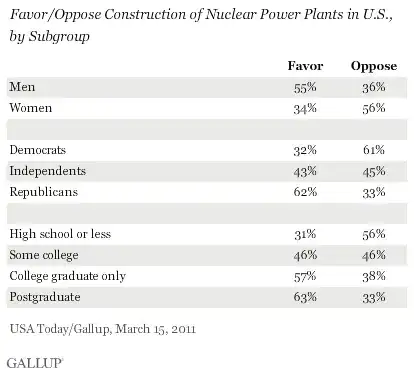In Germany, the event has likely triggered the complete phase-out of nuclear power.
However, it is important to have a bit of context:
Nuclear energy always had a lot of critics in Germany, even in government. In fact, the previous red/green government had already signed a slow phase-out of nuclear power in 2000 (the “Atomkonsens” [German]). A few years later, the current conservative government had effectively cancelled this agreement in 2010.
The current crisis, having led once again to massive protests, has merely re-initiated the nuclear power phase-out. Polls show that 80% of the Germans are against an extension of nuclear power usage. Effective immediately, seven out of the seventeen active nuclear power plants in Germany have been shut down:
 [Source: Wikipedia; shut-down reactors are in red]
[Source: Wikipedia; shut-down reactors are in red]
In summary, public faith in nuclear power has always been low in Germany but the Fukushima events may have provided the small extra push necessary to tip the scales.

 [Source:
[Source: